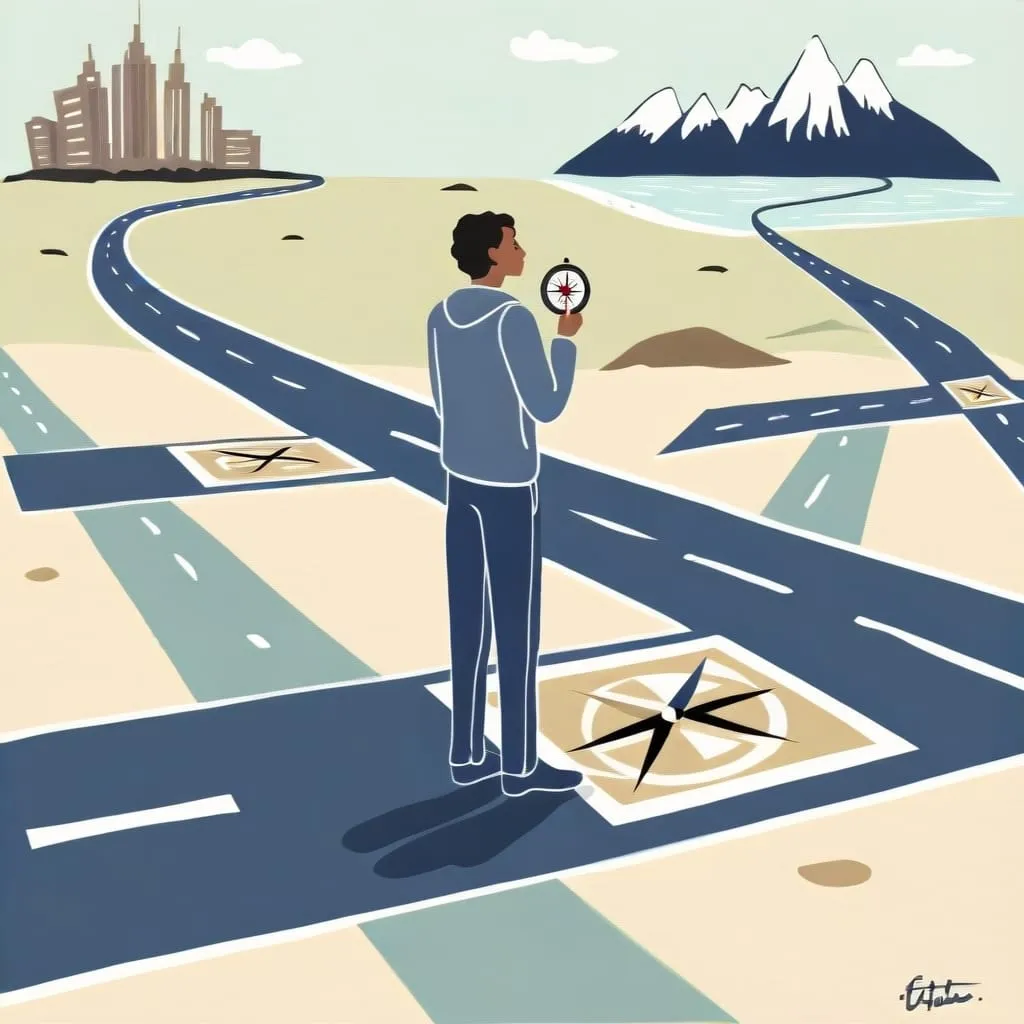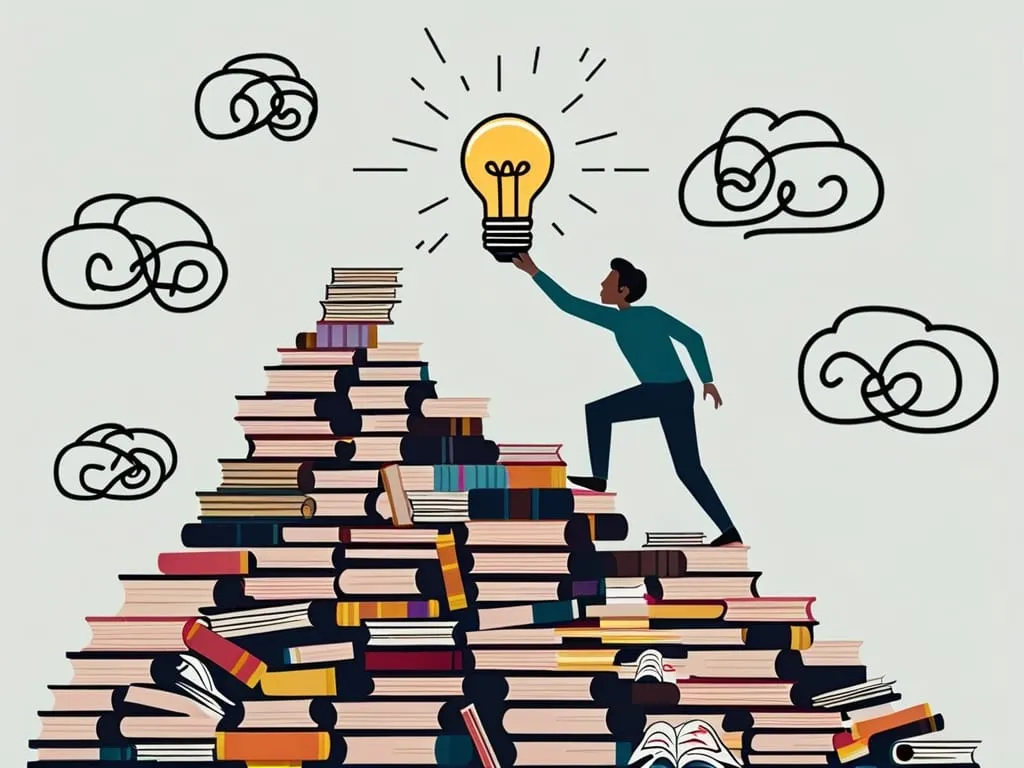Making Tough Decisions with Confidence: A Guide to Better Choices
We've all been there - staring down the barrel of a big decision, feeling the weight of uncertainty pressing on our shoulders. Whether it's a career move, a financial investment, or a personal life choice, tough decisions can leave us feeling stuck and unsure. But here's the thing: making difficult decisions with confidence is a skill you can develop. It's not about always being right; it's about trusting yourself and your process.
Let's dive into some strategies that can help you navigate those tricky choices with more assurance. Trust me, I've been through my fair share of tough calls, and these tips have been game-changers.
First up, let's talk about alignment. When you're faced with a tough decision, take a step back and think about your long-term goals and values. It's like checking your compass before setting off on a hike. If you're considering a new business venture, for example, ask yourself how it fits into your bigger financial picture. Does it align with your vision of growth and stability? If it does, you'll feel a lot more confident moving forward.
Now, here's something that might ruffle a few feathers: stop seeking external validation for every decision. I know, I know, it's tempting to ask everyone and their dog for advice. But here's the thing - at the end of the day, you're the one who has to live with your choice. Use advice as a guide, sure, but don't let it be the deciding factor. Your gut feeling matters more than you might think.
Speaking of gut feelings, let's talk about intuition. It's that little voice in your head that sometimes speaks up when you're mulling over a decision. Don't ignore it! Our emotions play a big role in decision-making, whether we like it or not. If you're thinking about investing in stocks and it feels right despite the risks, that might be your intuition giving you a nudge.
But hey, I'm not saying you should throw logic out the window. Far from it. One of the most useful tools in your decision-making kit is the good old pros and cons list. It's simple, but it works. Jot down the potential outcomes of each option. When I was deciding whether to take on a big financial commitment, laying out the pros and cons helped me visualize the impact on my finances. It made the decision feel less daunting.
Sometimes, though, you can get too close to a decision. You're so wrapped up in it that you can't see the forest for the trees. That's when creating some psychological distance can help. Try this: imagine you're giving advice to a friend in your situation. What would you tell them? Or think about how you'll view this decision five years from now. It's amazing how a change in perspective can clarify things.
Now, let's talk about building your decision-making muscle. Like any skill, it gets better with practice. Start small. Make frequent, low-stakes decisions and work your way up to the bigger ones. If you're new to investing, for instance, start with small amounts before diving into the deep end. It's like training for a marathon - you don't start with the full 26 miles on day one.
When you're faced with multiple options, it can feel overwhelming. Here's a trick: ask yourself what happens if you choose one path versus another. It helps you weigh the potential outcomes and risks. If you're thinking about starting a side business, consider both success and failure scenarios. This clarity can boost your confidence in whatever choice you make.
Don't underestimate the power of different perspectives. Having a trusted group of friends or mentors to bounce ideas off can be invaluable. They might see angles you've missed. When I was considering buying a house, talking it through with my financial advisor opened my eyes to considerations I hadn't even thought of.
Data is your friend when it comes to tough decisions. Gather as much information as you can. Look at historical trends, expert opinions, and relevant statistics. It's like building a solid foundation for your decision. When you know you've done your homework, you'll feel more confident in your choice.
Here's something that might surprise you: many decisions are ultimately made based on emotions and then rationalized afterward. And that's okay! It's important to explore your feelings about a decision. If you're mulling over a job offer, pay attention to how it makes you feel. If it feels right, even if it's not the highest-paying option, it might be the best choice for your overall happiness.
But here's a word of caution: avoid making big decisions when you're in extreme moods. Whether you're on cloud nine or down in the dumps, your judgment can be clouded by temporary emotions. If you've just had a big win or a major loss, give yourself a few days before making any significant choices.
Visual tools can be super helpful in decision-making. Ever tried a SWOT analysis? It stands for strengths, weaknesses, opportunities, and threats. Creating a visual representation of your decision can help you see things more clearly. I used this when I was deciding whether to invest in a friend's startup. Seeing the potential strengths and weaknesses laid out visually made the decision much clearer.
Here's a hard truth: there are rarely "right" or "wrong" answers when it comes to big decisions. There's just the best answer for you based on your values and goals. Accepting this can free you from the paralysis of trying to find a perfect solution. When I was choosing between two job offers, I realized that neither was perfect, but one aligned better with my long-term career goals.
Learning from past decisions is crucial. Take some time to reflect on choices you've made before. What worked? What didn't? I once made a financial investment that didn't pan out, but the lessons I learned from that experience have been invaluable in making future decisions.
Lastly, don't underestimate the power of mindfulness. Taking a moment to breathe and clear your mind can do wonders for your decision-making. Before making any big choice, I like to take a few minutes to meditate or do some deep breathing exercises. It helps me approach the decision with a calm, clear mind.
Remember, making difficult decisions with confidence is a skill that develops over time. It's about practice, reflection, and using the right strategies. Don't be afraid of making mistakes - they're part of the learning process. What matters is that you learn from them and keep growing.
So next time you're faced with a tough decision, take a deep breath. Remember these strategies. Trust yourself. You've got this.






